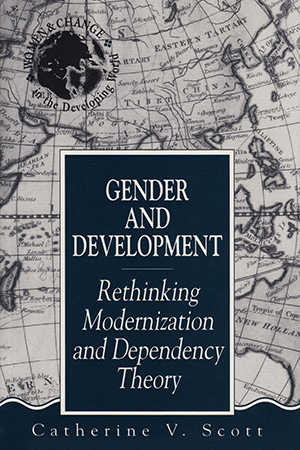
- 1996/151 pages
- Women and Change in the Developing World
Gender and Development:
Rethinking Modernization and Dependency Theory
Early modernization theorists, points out Scott, often juxtaposed modernity and tradition in ways reminiscent of Enlightenment dichotomies that pitted the rational, productive city against the particularistic, fragmented, and stagnant countryside. Dependency theory, despite its radically different focus on the causes of underdevelopment, also rests upon masculinist conceptions of the unfolding of history, human labor, and the gendered divisions between the public and private realms. Recent theories of the African "soft state," realized in policymaking, revive modernization theory's dichotomies; and revolutionary political leaders in African countries, though they have challenged imperialism, have retained the Marxist blindspot regarding gender.
This provocative critique of both theory and practice goes beyond the "women in development" approach to explore fundamental reconceptualizations of tradition, modernity, masculinity, femininity, revolution, and development.







